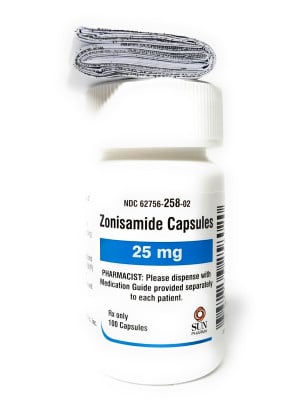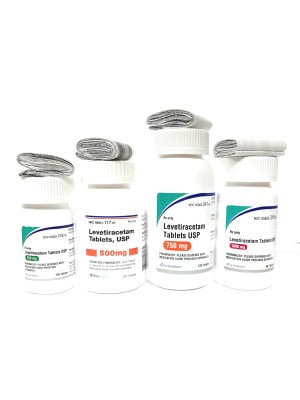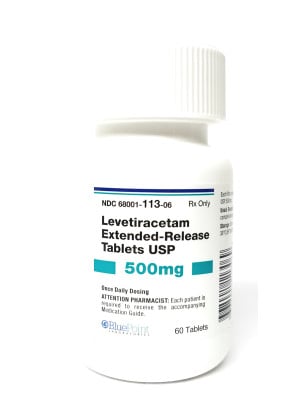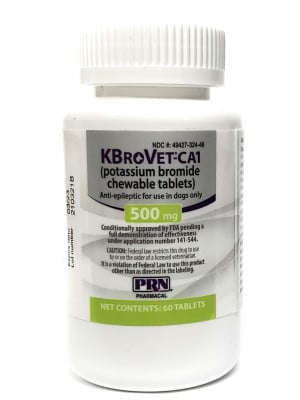A Spoonful of Sugar, What you need to know about Treatment and Supplements
Treatment:
The good news about seizures is that over the years I have seen many dogs treated with reliable medications like Phenobarbital and other anti-seizure medications achieve a healthy and normal life with only occasional seizures. Modern medicine has also provided other medications that can be used to help control and treat seizures for example Zonisamide, Keppra or Levetiracetam and K BroVet.
Is Drug Monitoring Necessary?
Be aware that Phenobarbital requires regular therapeutic drug monitoring, approximately every 6 month, which will require visits to your veterinarian to determine your pet’s blood level of Phenobarbital and how effective that level is at preventing seizures.
When your pet is placed on Phenobarbital it is important to know about something called a Therapeutic Window. There is a therapeutic window that a dosage of Phenobarbital is effective, if your pet’s dosage is not within that window there are negative consequences.
If the dosage level has reached the maximum dosage allowed then there's nothing more Phenobarbital can do to help prevent seizures, going to a higher dose will only further damage your pet’s liver.
On the opposite side of the spectrum if the dosage is too low and is not in the therapeutic window there's no real benefit to giving the medication. So regular therapeutic drug monitoring will be an important part of your pet’s treatment.
Commitment Required
It will be important to keep your pet on his medication regularly (especially Phenobarbital) and also to give the correct dosage every time according to your Veterinarian’s prescription instructions.
As mentioned previously it's important to control seizures because the more seizures they have the more prone they will become to having more seizures and the more difficult it can be to treat and prevent them.
New medications like Zonisamide and Keppra or levetiracetam can be used to reduce or eliminate Phenobarbital and have much fewer side effects. Some of these drugs might be an option for a pet that is experiencing very few seizures over the course of 6-9months.
What can I do to reduce the damage of my pet’s seizure medicine on their body?
The advantage of combining supplements with traditional western medicine is that a pet has an increased chance of living a longer and more comfortable life.
Supplements can also be used to improve the overall health of the pet and prevent some of the negative side effects of the medications damaging your pet’s body.
I recommend NeuroConnex to my patients to help reduce the damaging effects of seizures on their pet’s body and to help support a healthy nervous system.
NeuroConnex combines both Neuroprevin™ and PolicosanolPlus™ which has been shown to enhance nerve formation and then promote the maintenance of these nerves. Evidence supports its use as a functional ingredient for nerve regeneration as well as neuroprotection from the effects of environmental pollutants and aging.
Another supplement that we recommend with any pet that is taking seizure medications like Phenobarbital is that they’re on a liver supplement, such as Liver Support Chew Tabs, Denosyl or SAMe. Anti Seizure medications can damage or stress the liver, Liver Supplements help to support the overall health of the liver. By supporting both the liver and nervous system of your pet your pet will be more likely to have a healthier and happier life.
One more thing, Diet
Changes to diet can be beneficial depending on your dog’s specific situation. Many case studies have shown a correlation between food allergies and epilepsy. Switching your dog to a hypoallergenic diet like a prescription diet of Purina Pro Plan HA or transitioning from an over-the-counter commercial food to home-prepared meals with organic ingredients can prevent seizures and make a huge difference in your dog’s overall health.
Essential Fatty Acids (Omega-3 and Omega-6 oils): Many humans with epilepsy have been helped by eating a ketogenic diet (high in fat, low in carbohydrates). High fat seems to decrease the excitability of the neurons in the brain, and the addition of omega-3 and omega-6 fatty acids (both of which are found in wild-caught-salmon oil) can decrease seizure frequency and intensity in dogs.
Nutraceuticals: The exact mechanism of action of each supplement is beyond the scope of this discussion, but a variety of vitamins and nutritional supplements have been highly effective in decreasing seizures in dogs. In my practice, we regularly recommend the following for our epileptic patients: DMG (n, n dimethyl-glycine); Choline; taurine; L-tryptophan; magnesium; melatonin; phosphatidylserine; and antioxidants such as vitamins C, A and B complex.













